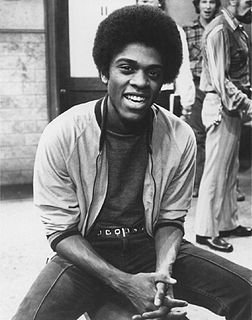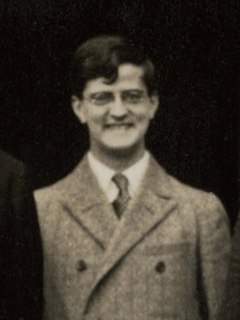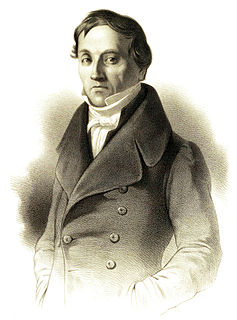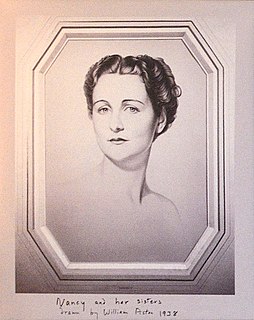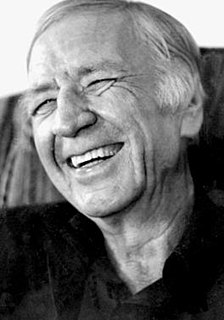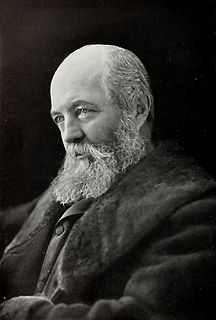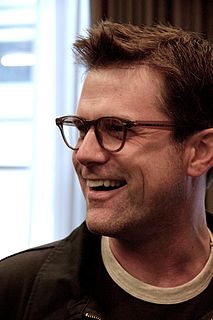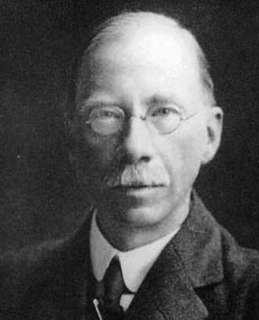Top 968 Peculiar Quotes & Sayings - Page 16
Explore popular Peculiar quotes.
Last updated on April 21, 2025.
To my way of thinking, the concept drawings that Rembrandt did, the drawings he made that he used to model his artists, to work out the compositions of his paintings: those are cartoons. Look at his sketch for the return of the prodigal son. The expression on the angry younger brother's face. The head is down; the eyebrow is just one curved line over the eyes. It communicates in a very shorthand way. It's beautiful, expressive, and, in a peculiar way, it's more powerful than the kind of stilted, formalized expression in the final painting.
It's a peculiar thing about liberals. When it comes to middle-class people who are fully capable of caring for themselves, liberals seek to undermine their independence in every way possible. With seductive 'entitlements' like guaranteed retirement, health care, nutrition, education, and jobs, liberals attempt to lure the middle class into dependence on the state. But when it comes to those who are truly incompetent, those whose mental afflictions render them unable to manage their lives at all, liberals are suddenly transformed into absolutists for personal autonomy.
It is not merely the brevity by which the haiku isolates a particular group of phenomena from all the rest; nor its suggestiveness, through which it reveals a whole world of experience. It is not only in its remarkable use of the season word, by which it gives us a feeling of a quarter of the year; nor its faint all-pervading humour. Its peculiar quality is its self-effacing, self-annihilative nature, by which it enables us, more than any other form of literature, to grasp the thing-in-itself.
I had no idea what effect something blockbustering would have. To me, it was just a job that I was trying to do the best I could. We had shot the first five shows before it went on the air. Then, it was this firecracker hit, and people were recognizing me, so it was just nuts. It was overwhelming, insane, wonderful and scary all at the same time. It's really peculiar that people see you on television and then think they have a personal relationship with you. So, they want to touch you, and grab you, and sit down and have lunch with you. It's strange, and you never get used to that.
Imagine discovering a continent so vast that it may have no end to its dimensions. Imagine a new world with more resources than all our future greed might exhaust, more opportunities than there will ever be entrepreneurs enough to exploit, and a peculiar kind of real estate that expands with development. Imagine a place where trespassers leave no footprints, where goods can be stolen infinite number of times and yet remain in the possession of their original owners, where business you never heard of can own the history of your personal affairs.
Man is a machine, but a very peculiar machine. He is a machine which, in right circumstances, and with right treatment, can know that he is a machine, and having fully realized this, he may find the ways to cease to be a machine. First of all, what man must know is that he is not one; he is many. He has not one permanent and unchangeable “I” or Ego. He is always different. One moment he is one, another moment he is another, the third moment he is a third, and so on, almost without end.
Now consciousness, what is consciousness? Consciousness is being aware of one's surroundings, recognizing the existence, truth or fact of something; being aware of the very moment, the very instant that you are in; being aware of how you affect the human social, political, and natural ecology you are a part of and how it affects you. Consciousness is being informed and instructed through your groups peculiar culture on the effects of the varied ecologies on your immediate and distant ancestors, and to be aware of their interpretation of that experience.
As you are aware, no perceptions obtained by the senses are merely sensations impressed on our nervous systems. A peculiar intellectual activity is required to pass from a nervous sensation to the conception of an external object, which the sensation has aroused. The sensations of our nerves of sense are mere symbols indicating certain external objects, and it is usually only after considerable practice that we acquire the power of drawing correct conclusions from our sensations respecting the corresponding objects.
He that would travel for the entertainment of others, should remember that the great object of remark is human life. Every Nation has something peculiar in its Manufactures, its Works of Genius, its Medicines, its Agriculture, its Customs, and its Policy. He only is a useful Traveller, who brings home something by which his country may be benefited; who procures some supply of Want, or some mitigation of Evil, which may enable his readers to compare their condition with that of others, to improve it whenever it is worse, and whenever it is better to enjoy it.
We are in a war of a peculiar nature. It is not with an ordinary community, which is hostile or friendly as passion or as interest may veer about: not with a state which makes war through wantonness, and abandons it through lassitude. We are at war with a system, which by its essence, is inimical to all other governments, and which makes peace or war, as peace and war may best contribute to their subversion. It is with an armed doctrine that we are at war. It has, by its essence, a faction of opinion, and of interest, and of enthusiasm, in every country.
Nigeria is so peculiar and dramatic. Even talking about the potentials before we talk about the negativities, Nigeria is a nation for perpetual study. I think in Nigeria, it is the potential which hits people and makes them believe in Nigeria. It tends to make them react when they see potentials being wasted and it is a tragedy to see potentials wasted. But paradoxically, it is a realization of the existence, that positive, that keeps many Nigerians and even foreign people going.
Accounts of outrages committed by mobs form the every-day news of the times. They have pervaded the country from New England to Louisiana, they are neither peculiar to the eternal snows of the former nor the burning suns of the latter; they are not the creature of climate, neither are they confined to the slaveholding or the non-slaveholding States. Alike they spring up among the pleasure-hunting masters of Southern slaves, and the order-loving citizens of the land of steady habits. Whatever then their cause may be, it is common to the whole country.
From our sorrow we might seek out the sweetness and the good that is often associated with and peculiar to our challenge. We can seek out those memorable moments that are frequently hidden by the pain and agony. We can find peace in extending ourselves to others, using our own experiences to provide hope and comfort. And we can always remember with great solemnity and gratitude Him who suffered most to make it all right for us. And by so doing we can be strengthened to bear our burdens in peace. And then, the 'works of God' might be manifest.
[In 1951] we were also told that the Russians could be parachuting from planes over our town at any time. These were the same Russians that my uncles had fought alongside only a few years earlier. Now they had become monsters who were coming to slit our throats and incinerate us. It seemed peculiar. Living under a cloud of fear like this robs a child of his spirit. It's one thing to be afraid when someone's holding a shotgun on you, but it's another thing to be afraid of something that's just not quite real.
She was still under the spell of her infatuation. She had tried to forget him, realizing the inutility of remembering. But the thought of him was like an obsession, ever pressing itself upon her. It was not that she dwelt upon details of their acquaintance, or recalled in any special or peculiar way his personality; it was his being, his existence, which dominated her thought, fading sometimes as if it would melt into the mist of the forgotten, reviving again with an intensity which filled her with an incomprehensible longing.
A little group of thatched cottages in the middle of the village had an orchard attached; and I remember well the peculiar purity of the blue sky seen through the white clusters of apple blossom in spring. I remember being moonstruck looking at it one morning early on my way to school. It meant something for me; what, I couldn't say. It gave me such an unease at heart, some reaching out towards perfection such as impels men into religion, some sense of the transcendence of things, of the fragility of our hold on life.
It was dark in the alcove, so dark that Jace was only an outline of shadows and gold. His body pinned Clary's to the wall. His hands slid down along her body and reached the end of her dress, drawing it up along her legs. "What are you doing?" She whispered. "Jace?" He looked at her. The peculiar light in the club turned his eyes an array of fractured colors. His smile was wicked. "You can tell me to stop whenever you want," he said. "But you won't.
Great works of art can be produced in barbarous societies - in fact the very narrowness of primitive society gives their ornamental art a peculiar concentration and vitality. At some time in the ninth century one could have looked down the Seine and seen the prow of a Viking ship coming up the river. Looked at today in the British Museum, it is a powerful work of art; but to the mother of a family trying to settle down in her little hut, it would have seemed less agreeable - as menacing to her civilisation as the periscope of a nuclear submarine.
We have no reason to be discouraged and cast down if the religion we profess is not popular and few agree with us. We must remember the words of our Lord Jesus Christ in this passage: ‘The gate is narrow’. Repentance, and faith in Christ, and holiness of life, have never been fashionable. The true flock of Christ has always been small. It must not move us to find that we are reckoned singular, and peculiar, and bigoted, and narrow minded. This is the ‘narrow way’. Surely it is better to enter into eternal life with a few, than to go to ‘destruction’ with a great company
Introspection is self-improvement and therefore introspection is self-centeredness. Awareness is not self-improvement. On the contrary, it is the ending of the self, of the “I,” with all its peculiar idiosyncrasies, memories, demands, and pursuits. In introspection there is identification and condemnation. In awareness there is no condemnation or identification; therefore, there is no self-improvement. There is a vast difference between the two.
In the latter sense, a man has a property in his opinions and the free communication of them. He has a property of peculiar value in his religious opinions, and in the profession and practice dictated by them. He has an equal property in the free use of his faculties and free choice of the objects on which to employ them. In a word, as a man is said to have a right to his property, he may be equally said to have a property in his rights.
In the world's history certain inventions and discoveries occurred, of peculiar value, on account of their great efficiency in facilitating all other inventions and discoveries. Of these were the art of writing and of printing - the discovery of America, and the introduction of Patent-laws. The date of the first ... is unknown; but it certainly was as much as fifteen hundred years before the Christian era; the second-printing-came in 1436, or nearly three thousand years after the first. The others followed more rapidly - the discovery of America in 1492, and the first patent laws in 1624.
The price a world language must be prepared to pay is submission to many different kinds of use. The African writer should aim to use English in a way that brings out his message best without altering the language to the extent that its value as a medium of international exchange will be lost. He should aim at fashioning out an English which is at once universal and able to carry his peculiar experience.
The interpretation of the laws is the proper and peculiar province of the courts. A constitution is, in fact, and must be regarded by the judges, as fundamental law. It therefore belongs to them to ascertain its meaning, as well as the meaning of any particular act proceeding from the legislative body. If there should happen to be an irreconcilable variance between the two, that which has the superior obligation and validity ought, of course, to be preferred; or, in other words, the Constitution ought to be preferred to the statute, the intention of the people to the intention of their agents.
A reader's tastes are peculiar. Choosing books to read is like making your way down a remote and winding path. Your stops on that path are always idiosyncratic. One book leads to another and another the way one thought leads to another and another. My type of reader is the sort who burrows through the stacks in the bookstore or the library (or the Web site — stacks are stacks), yielding to impulse and instinct.
The discovery of radioactivity created a momentary chaos in chemistry and physics; but it soon led to a fuller interpretation of the old ideas. It dispersed many difficulties, harmonized many discords, and yea, more! It shewed the substance of Universe as a simplicity of Light and Life, manners to compose atoms, themselves capable of deeper self-realization through fresh complexities and organizations, each with its own peculiar powers and pleasures, each pursuing its path through the world where all things are possible.
The distinguishing of the strata, or layers, in the embryonic membrane was a turning-point in the study of the history of evolution, and placed later researches in their proper light. A division of the (disc-shaped) embryo into an animal and a plastic part first takes place. In the lower part (the plastic or vegetative layer) are a serous and a vascular layer, each of peculiar organization. In the upper part also (the animal or serous germ-layer) two layers are clearly distinguishable, a flesh-layer and a skin-layer. (1828)
Who's counting? It was, of course, the minority who were counting. It always is. Most of the women I know today would dearly like to use their fingers and toes for some activity more enthralling than counting. They have been counting for so long. But the peculiar problem of the new math is that every time we stop adding, somebody starts subtracting. At the very least (the advanced students will understand this) the rate of increase slows. ... The minority members of any group or profession have two answers: They can keep score or they can lose.
We shall see that the mathematical treatment of the subject [of electricity] has been greatly developed by writers who express themselves in terms of the 'Two Fluids' theory. Their results, however, have been deduced entirely from data which can be proved by experiment, and which must therefore be true, whether we adopt the theory of two fluids or not. The experimental verification of the mathematical results therefore is no evidence for or against the peculiar doctrines of this theory.
I want to do the right thing, but often I don't know just what the right thing is. Every day I know I have come short of what I would like to have done. Yet as the years pass and I see the very world itself, with its oceans and mountains and plains, as something unfinished, a peculiar little satisfaction hunts out the corners of my heart. Sunsets and evening shadows find me regretful at task's undone, but sleep and the dawn and the air of the morning touch me with freshening hopes. Strange things blow in through my window on the wings of the night wind and I don't worry about my destiny.
The universe contains any amount of horrible ways to be woken up, such as the noise of the mob breaking down the front door, the scream of fire engines, or the realization that today is the Monday which on Friday night was a comfortably long way off. A dog's wet nose is not strictly speaking the worst of the bunch, but it has it's own peculiar dreadfulness which connoisseurs of the ghastly and dog owners everywhere have come to know and dread. It's like having a small piece of defrosting liver pressed lovingly against you.
Among the features peculiar to the political system of the United States is the perfect equality of rights which it secures to every religious sect. [...] Equal laws protecting equal rights, are found as they ought to be presumed, the best guarantee of loyalty, and love of country; as well as best calculated to cherish that mutual respect and good will among citizens of every religious denomination which are necessary to social harmony and most favorable to the advancement of truth.
If the people of God were to transform the world through fascination, these amazing teachings had to work at the center of these peculiar people. Then we can look into the eyes of a centurion and see not a beast but a child of God, and then walk with that child a couple of miles. Look into the eys of tax collectors as they sue you in court; see their poverty and give them your coat. Look in to the eys of the ones who are hardest for you to like, and see the One you love. For God loves good and bad people.
TV acting is so extremely intimate, because of the peculiar involvement of the viewer with the completion or "closing" of the TV image, that the actor must achieve a great degree of spontaneous casualness that would be irrelevant in movie and lost on the stage. For the audience participates in the inner life of the TV actor as fully as in the outer life of the movie star. Technically, TV tends to be a close-up medium. The close-up that in the movie is used for shock is, on TV, a quite casual thing.
He is not famous. It may be that he never will be. It may be that when his life at last comes to an end he will leave no more trace of his sojourn on earth than a stone thrown into a river leaves on the surface of the water. But it may be that the way of life that he has chosen for himself and the peculiar strength and sweetness of his character may have an ever-growing influence over his fellow men so that, long after his death perhaps, it may be realized that there lived in this age a very remarkable creature.
Paris in the early morning has a cheerful, bustling aspect, a promise of delicious things to come, a positive smell of coffee and croissants, quite peculiar to itself. The people welcome a new day as if they were certain of liking it, the shopkeepers pull up their blinds serene in the expectation of good trade, the workers go happily to their work, the people who have sat up all night in night-clubs go happily to their rest, the orchestra of motor-car horns, of clanking trams, of whistling policemen tunes up for the daily symphony, and everywhere is joy.
Maybe your life resembles a Bethlehem stable. Crude in some spots, smelly in others. Not much glamour. Not always neat. People in your circle remind you of stable animals: grazing like sheep, stubborn like donkeys, and that cow in the corner looks a lot like the fellow next door. You, like Joseph, knocked on the innkeeper's door. But you were too late. Or too old, sick, dull, damaged, poor, or peculiar. You know the sound of a slamming door.
Once upon a time there was a girl who discovered that if she played a certain tune on a jade flute, she could summon up jade gnomes, a peculiar, harmless, but rather creepy looking spirit of the underground. The fact is that many of us have talents like this, but generally never discover them due to lack of opportunity, since one can go one's entire life without playing a jade flute, or discovering that one can speak the language of ground sloths, or turning fruitcake into solid tungsten by singing Sinatra tunes to it under a quarter moon.
We're living in a funny world kid, a peculiar civilization. The police are playing crooks in it, and the crooks are doing police duty. The politicians are preachers, and the preachers are politicians. The tax collectors collect for themselves. The Bad People want us to have more dough, and the good people are fighting to keep it from us. It's not good for us, know what I mean? If we had all we wanted to eat, we'd eat too much. We'd have inflation in the toilet paper industry. That's the way I understand it. That's about the size of some of the arguments I've heard.
The enjoyment of the choicest natural scenes in the country and the means of recreation connected with them is thus a monopoly, in a very peculiar manner, of a very few very rich people. The great mass of society, including those to whom it would be of the greatest benefit, is excluded from it. In the nature of the case private parks can never be used by the mass of the people in any country nor by any considerable number even of the rich, except by the favor of a few, and in dependence on them.
But there are people who take salt with their coffee. They say it gives a tang, a savour, which is peculiar and fascinating. In the same way there are certain places, surrounded by a halo of romance, to which the inevitable disillusionment you experience on seeing them gives a singular spice. You had expected something wholly beautiful and you get an impression which is infinitely more complicated than any that beauty can give you. It is the weakness in the character of a great man which may make him less admirable but certainly more interesting. Nothing had prepared me for Honolulu.
Before you sweat the logistics of focus: ?rst, care. Care intensely.... Obsessing over the slipperiness of focus, bemoaning the volume of those devil "distractions," and constantly reassessing which shiny new "system" might make your life suddenly seem more sensible - these are all terrifically useful warning ?ares that you may be suffering from a deeper, more fundamental problem.... Know in your heart that what you're making or doing matters... First, care. Then, as you'll happily and unavoidably discover, all that "focus" business has a peculiar way of taking care of itself.
The investigation of causal relations between economic phenomena presents many problems of peculiar difficulty, and offers many opportunities for fallacious conclusions. Since the statistician can seldom or never make experiments for himself, he has to accept the data of daily experience, and discuss as best he can the relations of a whole group of changes; he cannot, like the physicist, narrow down the issue to the effect of one variation at a time. The problems of statistics are in this sense far more complex than the problems of physics.
And as for other men, who worked in tank-rooms full of steam, and in some of which there were open vats near the level of the floor, their peculiar trouble was that they fell into the vats; and when they were fished out, there was never enough of them left to be worth exhibiting,-sometimes they would be overlooked for days, till all but the bones of them had gone out into the world as Durham's Pure Leaf Lard! This contributed to the passing of the Pure Food Act of 1906.
The legislator should direct his attention above all to the education of youth; for the neglect of education does harm to the constitution. The citizen should be molded to suit the form of government under which he lives. For each government has a peculiar character which originally formed and which continues to preserve it. The character of democracy creates democracy, and the character of oligarchy creates oligarchy.
As a writer, politician, scientist, and businessman, [Ben] Franklin had few equals among the educated of his day-though he left school at ten. (...)Boys like Andrew Carnegie who begged his mother not to send him to school and was well on his way to immortality and fortune at the age of thirteen, would be referred today for psychological counseling; Thomas Edison would find himself in Special Ed until his peculiar genius had been sufficiently tamed.
I have a general feeling that writers and artists who are in this peculiar situation, of being a persecuted artist, all anyone ever asks about is the persecution. It may well be that's the last thing in the world they want to talk about. There were many years in which every journalist in the world wanted to talk to me, but nobody wanted to talk to me about my work. That felt deeply frustrating because I felt there was an attempt to stifle me as an artist. The best revenge I could have was to write.
It was the peculiar artifice of Habit not to suffer her power to be felt at first. Those whom she led, she had the address of appearing only to attend, but was continually doubling her chains upon her companions; which were so slender in themselves, and so silently fastened, that while the attention was engaged by other objects, they were not easily perceived. Each link grew tighter as it had been longer worn; and when by continual additions they became so heavy as to be felt, they were very frequently too strong to be broken.
Printed prose is historically a most peculiar, almost an aberrant way of telling stories, and by far the most inherently anesthetic: It is the only medium of art I can think of which appeals directly to none of our five senses. The oral and folk tradition in narrative made use of verse or live-voice dynamics, embellished by gesture and expression--a kind of rudimentary theater--as do the best raconteurs of all times. Commonly there was musical accompaniment as well: a kind of one-man theater-of-mixed-means.
In the older times it was seldom said to little girls, as it always has been said to boys, that they ought to have some definite plan, while they were children, what to be and do when they were grown up. There was usually but one path open before them, to become good wives and housekeepers. And the ambition of most girls was to follow their mothers' footsteps in this direction; a natural and laudable ambition. But girls, as well as boys, must often have been conscious of their own peculiar capabilities,--must have desired to cultivate and make use of their individual powers.
Some attribute had departed from her, the permanence of which had been essential to keep her a woman. Such is frequently the fate, and such the stern development, of the feminine character and person, when the woman has encountered, and lived through, an experience of peculiar severity. If she be all tenderness, she will die. If she survive, the tenderness will either be crushed out of her, or—and the outward semblance is the same—crushed so deeply into her heart that it can never show itself more.
Mark and jay Duplass really like to improvise. Even if we beg them to go back to the script, they invariably ask us to go "off the rails," as they like to call it. It's just the way they work. You get a full written script. And it's really, really, really good, so that's why it's kind of peculiar that they always want you to improvise, because if I wrote something that good, I would want everyone to stick to the dialogue that was written.
This writer, who is horribly perspicacious and vigorous, demonstrates the certainty of a great European war, and regards it with the peculiar satisfaction excited by such things in a certain order of mind. His phrases about "dire calamity" and so on mean nothing; the whole tenor of his writing proves that he represents, and consciously, one of the forces which go to bring war about; his part in the business is a fluent irresponsibility, which casts scorn on all who reluct at the "inevitable." Persistent prophecy is a familiar way of assuring the event.
Both ground- rents and the ordinary rent of land are a species of revenue which the owner, in many cases, enjoys without any care or attention of his own. The annual produce of the land and labour of the society, the real wealth and revenue of the great body of the people, might be the same after such a tax as before. Ground-rents, and the ordinary rent of land are, therefore, perhaps the species of revenue which can best bear to have a peculiar tax imposed upon them.
Patriotism, or the peculiar relation of an individual to his country, is like the family instinct. In the child it is a blind devotion; in the man in intelligent love. The patriot perceives the claim made upon his country by the circumstances and time of her growth and power, and how God is to be served by using those opportunities of helping mankind. Therefore his country's honor is dear to him as his own, and he would as soon lie and steal himself as assist or excuse his country in a crime.
We who go a-fishing are a peculiar people. Like other men and women in many respects, we are like one another, and like no others, in other respects. We understand each other's thoughts by an intuition of which we know nothing. We cast our flies on many waters, where memories and fancies and facts rise, and we take them and show them to each other, and small or large, we are content with our catch.
This, then, is the ultimate, that is only, consolation: simply that someone shares some of your own feelings and has made of these a work of art which you have the insight, sensitivity, and — like it or not — peculiar set of experiences to appreciate. Amazing thing to say, the consolation of horror in art is that it actually intensifies our panic, loudens it on the sounding-board of our horror-hollowed hearts, turns terror up full blast, all the while reaching for that perfect and deafening amplitude at which we may dance to the bizarre music of our own misery.
If Christ be a fraud, he was among the most peculiar yet brilliant of frauds in saying that only he was the way, the truth, and the life. This is the importance of grace - some people think that simply being nice and not harming others is morality; others think that following rules and tithing are morality. But without Christ, all moral beliefs ultimately boil down to the one sin which perpetually rails against the concept of grace: man's lawful, religious, and futile attempt at establishing his own righteousness.
I've just finished a series of Olivia Manning novels. She's best known for two trilogies: Balkan Trilogy and Levant Trilogy. The six novels are continuous and contain the same set of characters. They are based on Manning's experiences in Eastern Europe and Egypt during the Second World War. Each novel is a wonderful picture of the peculiar British expatriate culture and what was happening during the war. She's one of those brilliant women who write very well about domestic relationships. All the books are slim, and it's easy to gallop through them.



